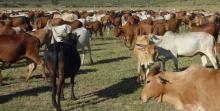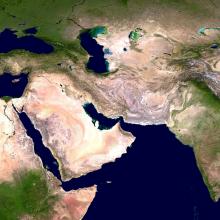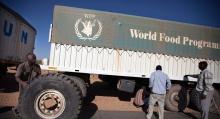Climate change and its impacts create severe risks for food systems and human security more broadly, making peaceful coexistence between people and communities harder to maintain or achieve. Both slow onset changes such as temperature rise and increased variability in precipitation patterns, as well as fast onset events such as extreme weather events can severely affect people’s livelihoods and food security, especially in contexts that are already fragile. These cascading effects can then contribute to socioeconomic and political instability, increasing the risk of violent conflict.












